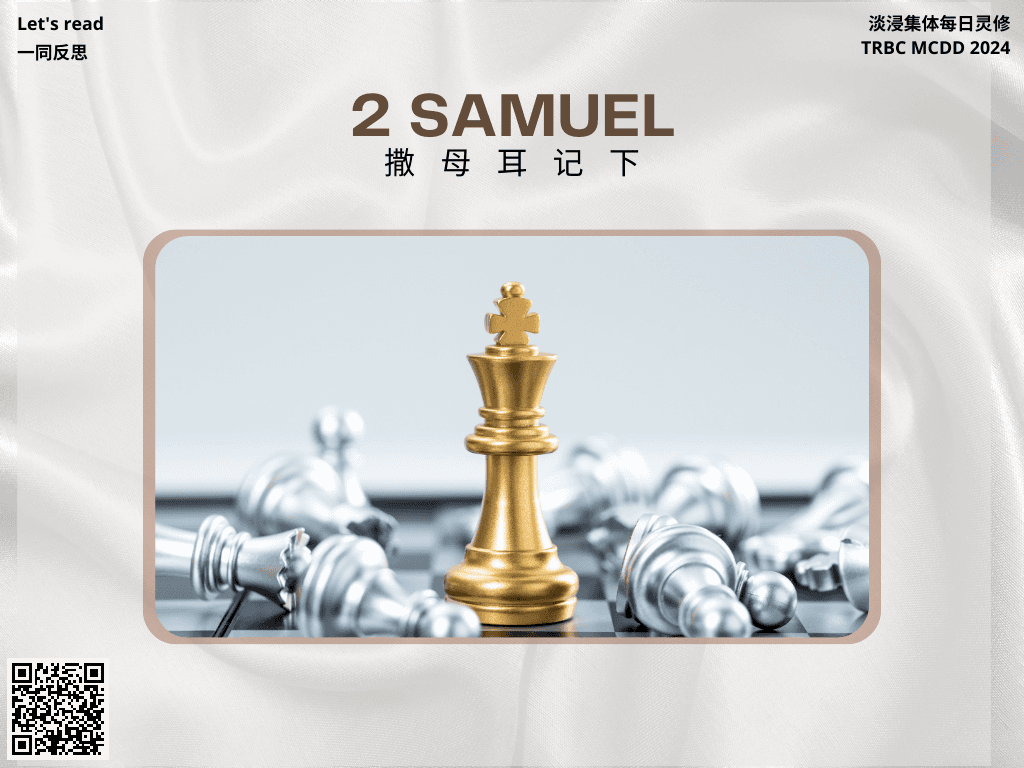Last 5 Days

Who is truly in charge?

The Philistines had controlled a big part of Israel on the western bank of Jordan. In order for David to gain military strength, David tried to win support in the tribes east of Jordan. However Abner, the commander of Saul’s army and also his cousin beat David to it. He brought Ish-bosheth, the son of Saul across the river of Jordan and personally made him king over Gilead and the Ashurites and Jezreel and Ephraim and Benjamin and all Israel. Abner’s intention however was to control Ish-bosheth and have the real power to throne.
On the other hand, the commander of David’s army was his nephew Joab. Both of them were attempting to control the strategic town of Gibeon, and Abner suggested an armed fight between twelve from the camp of Saul and twelve from the camp of David. This fight was meant to limit the direct military clash between the two armies which potentially will reduce the loss of the soldiers and commanders on both sides. However there was a tie in the fight where the twenty four of them died treacherously in the fight. In the end, the two armies of Abner and Joab still clashed and many lives were lost in the fight. In the process of this, Abner even killed Asahel, the brother of Joab in the midst of the fight.
Abner was losing the battle and with the army, they fled from the fight and as the sun was going down, they were cornered on the hill of Ammah. It was out of desperation, that Abner asked for a truce from Joab, stating that they were brothers with the same blood line. Joab’s response to him, “as God lives, if you had not spoken, surely the men would not have given up the pursuit of their brothers until the morning” (v27). Indeed, if Abner had not spoken, all these bloodshed would not be necessary.
Bill T Arnold said that the book of Samuel is primarily interested in two questions. One, what is the acceptable nature of the new Israelite monarchy? Unlike Canaanite rulers, the powers of Israel’s new king are circumscribed by the unique configuration of Israel’s monarchy. The king is not free to initiate warfare whenever and against whomever he wishes, nor can he confiscate property or conscript an army without just cause or take the power of the priest and prophets by force. This is a kingship that is governed by Yahweh, where the king’s decisions need to be made in consultation with Him.
Second question which the book of Samuel is interested in. Who may serve suitably as king of Israel? Only Yahweh is the king of Israel, and He governs His people through the appointment of king through anointing. He alone chooses who the king is, and God seeks those who fear and obey Him.
Abner’s decision to appoint Ish-bosheth as king and to wage war against God’s chosen king David showcased his disregarded for Yahweh. All the bloodshed of the people, and ultimately his own death was out of a personal desire for power. In contrast to chapter 1, where David feared and seek the Lord in all his ways, Abner demonstrated a negative example of understanding who was truly in charge of Israel.
Dear brothers and sisters, we too are susceptible to be like Abner. We know well who is in charge of our lives and circumstances. We understand that we are called to obey and submit to God’s instruction through His Holy Word. Are we so caught up with our own agenda in life that our religious piety and our actions do not reconcile? We say we love God, but yet we have quietly and subtly chosen to live a life doing things according to our agenda?
Dear brothers and sisters, may we acknowledge God in all our ways, fear the Lord and depart from evil (Proverbs 3:6) all the days of our lives.
Prayer: Dear God, would you help me to humble myself, and acknowledge you in all our ways. May my agenda continue to align to your agenda today, so that I will not depart from you. In Jesus’s name we pray, amen.
